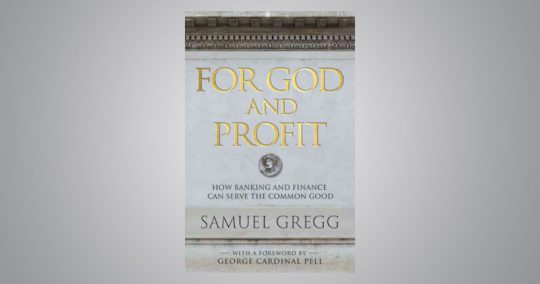In the latest edition of The Independent Review, Gerald P. Dwyer Jr. reviews Samuel Gregg’s For God and Profit: How Banking and Finance Can Serve the Common Good.
“The most unusual aspect of Gregg’s book is the combination of topics advertised in its very title: For God and Profit,” says Dwyer, “We all know about defenses of free markets. God seldom appears in those arguments. What has God got to do with it?”
Catholic social teaching is the framework Gregg uses in his discussion of banking and finance’s role in the economy. That’s where God and religion enter into it. Not just socialist nonsense, Catholic social teaching is a framework for thinking about the purpose of markets based on a view of life’s purpose, a purpose that can be summarized as “human flourishing.”
Catholic social teaching about finance is historically related to usury—the receipt of interest when there is no cost (including opportunity cost) and no risk of loss. Those who made consumption loans to poor people historically—early payday lenders, you might say—were often thought to be usurers. Gregg briefly summarizes the long history of Christian thought about finance, including usury, against the background of financial development in Europe. He then summarizes where the development of finance is today in terms of the most developed Christian thought, Catholic social teaching.
Gregg summarizes current Catholic social thought about finance in twenty pages in the middle of the book. The basic goal is “Doing good, avoiding evil, and human flourishing.” Human flourishing involves freely choosing “fundamental goods such as life and health, friendship, knowledge, integrity, beauty, and work” (p. 94). Defining good and evil is obviously important to make the goals operational. Christianity can provide those definitions.


